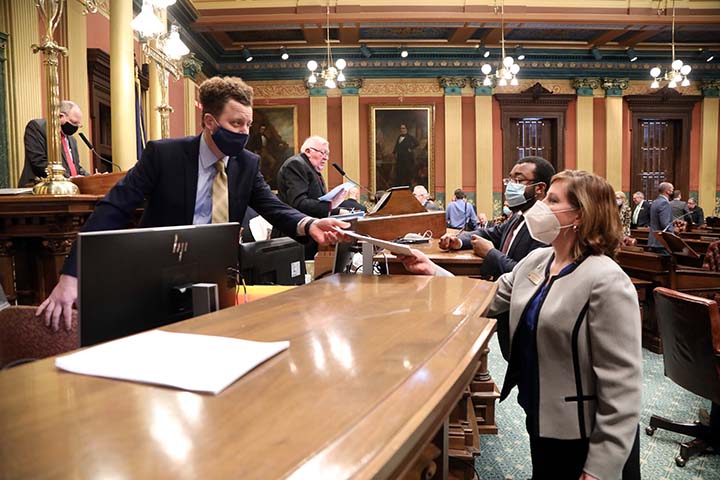LANSING, Mich., Jan. 29, 2021 — State Rep. Julie Rogers (D-Kalamazoo) introduced a resolution yesterday to recognize the 48th anniversary of the landmark U.S. Supreme Court decision Roe v. Wade. The Roe decision enshrined protections nationwide for an individual’s freedom to make their own medical decisions about their body and health, without intrusion from the government.
“Roe v. Wade was the culmination of the work of generations of individuals from all walks of life fighting for bodily autonomy,” said Rogers, who serves as a member of the Progressive Women’s Caucus (PWC). “No two pregnancies are the same and no one needs or wants politicians making medical decisions for them. Forty-eight years later, we are still fighting to protect the fundamental American value that the government should not interfere in decisions best made between individuals, their families, and their health care providers.”
While the right to have an abortion is the law of the land, it remains a right in name only for millions of Americans. State abortion restrictions, exacerbated by federal policies like the Hyde Amendment, have the greatest impact on communities already facing systemic barriers to health care, including for people of color, individuals with low-incomes and those living in rural areas.
“It’s important to honor the anniversary of Roe v. Wade, and we remain grateful for the rights we’ve already won. However, we’re acutely aware of the work that remains,” said state Rep. Laurie Pohutsky (D-Livonia), Chair of the PWC. “The last four years chipped away at womxn’s reproductive rights, particularly those around abortion access. Now we need to work to rebuild and expand them.”
The landmark decision on Roe v. Wade was issued by the U.S. Supreme Court on Jan. 22, 1973, as a case challenging a Texas law prohibiting all-but-lifesaving abortions. At the time, nearly all states outlawed abortion except for limited reasons; Roe rendered these laws unconstitutional, made abortion care vastly safer and more accessible to individuals throughout the country, and set a legal precedent affecting numerous subsequent Supreme Court cases involving restrictions on access to abortion.
# # #

